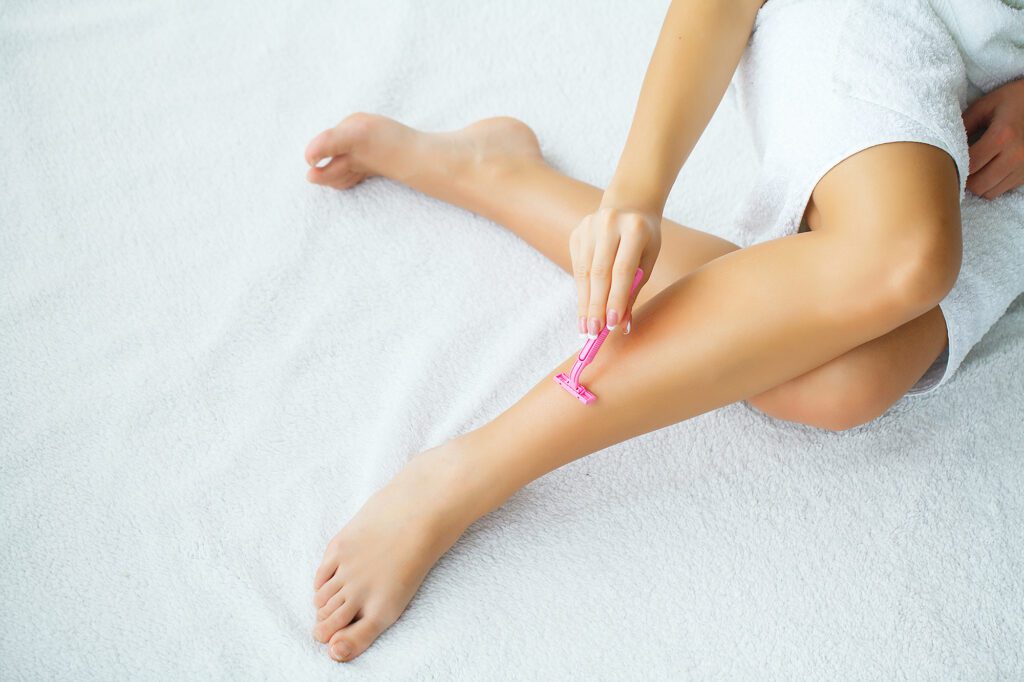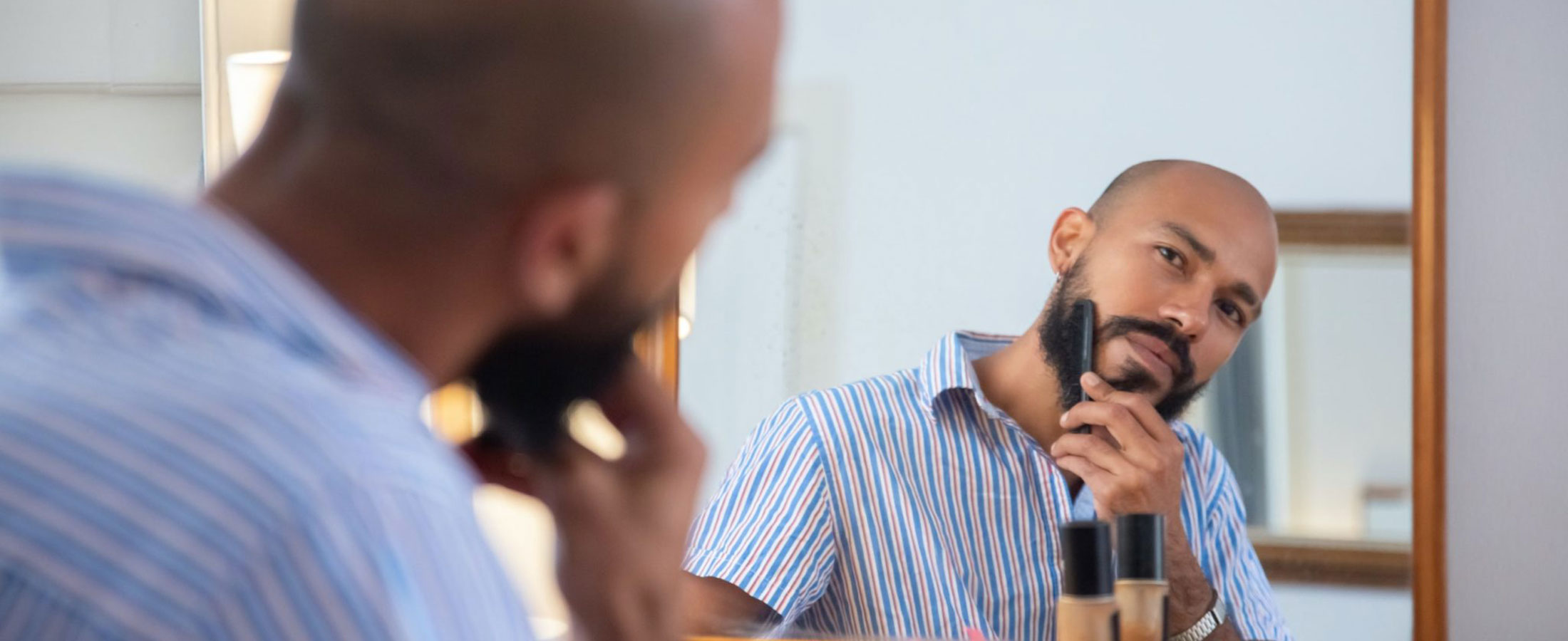Irregular sleep schedules can have significant impacts on employees, affecting various aspects of their physical health, mental well-being, and overall job performance. Here are some keyways in which irregular sleep patterns can influence employees:

Irregular sleep schedules often lead to insufficient and disrupted sleep, resulting in fatigue and decreased alertness during working hours. Employees may struggle to stay focused, make decisions, or remain engaged in their tasks.
Sleep plays a crucial role in cognitive functions such as memory, attention, and problem-solving. Irregular sleep patterns can impair these functions, leading to decreased productivity and efficiency in the workplace.
Lack of consistent and quality sleep can contribute to mood disturbances, including irritability, anxiety, and depression. Employees may find it challenging to manage stress, interact positively with
colleagues, and maintain a positive attitude at work.
Irregular sleep patterns have been linked to various health issues, including cardiovascular problems, obesity, and weakened immune function. Employees with irregular sleep schedules may be at a higher
risk of developing these health issues over time.
Sleep disruptions can lead to irritability and mood swings, which may strain interpersonal relationships at work. Effective communication and collaboration may be compromised, impacting teamwork and the overall workplace atmosphere.
Employees with irregular sleep schedules may experience reduced job satisfaction due to the negative effects on their well-being and performance. This dissatisfaction can lead to decreased motivation and
engagement in their work.
Employees with irregular sleep patterns may be more prone to absenteeism due to health issues or the need to recover from fatigue. This can result in higher rates of absenteeism, affecting team dynamics
and overall productivity.
Jobs that require high levels of concentration and alertness, such as those in healthcare, transportation, or manufacturing, may pose safety concerns when employees experience irregular sleep patterns.
Increased risk of accidents or errors can be a serious consequence.
For employees working non-traditional shifts, such as night shifts or rotating shifts, maintaining a consistent sleep schedule can be particularly challenging. This can exacerbate the negative effects on
health and well-being.
Chronic irregular sleep patterns may contribute to long-term health consequences, including an increased risk of chronic conditions such as diabetes, heart disease, and certain mental health disorders.
To mitigate these impacts, employers can consider implementing policies that promote a healthy work-life balance, provide resources for stress management, and offer flexibility in work schedules where possible. Additionally, promoting awareness and education about the importance of sleep hygiene can help employees make informed decisions about their sleep habits.
My team at and Razor Bumps Inc. are ready to help you and your employees.
Schedule your appointment now!
In today’s healthcare landscape, personalization and respect for individual preferences and needs are paramount. One aspect of patient-centered care that often goes unnoticed but plays a crucial role is the implementation of shaving waivers. This article delves into why shaving waivers are essential in healthcare settings, how they cater to diverse cultural and religious practices, and the unique approach of Razor Bumps in providing these waivers through their telehealth services.
A shaving waiver, simply put, is an allowance given to patients to abstain from shaving as part of medical procedures or general care. This might seem trivial at first glance, but it holds profound significance in healthcare. For patients, particularly those with specific skin conditions or undergoing certain treatments, shaving can be more than just an inconvenience; it can lead to discomfort, skin irritation, or even infection. By offering shaving waivers, healthcare providers like Razor Bumps demonstrate a commitment to patient comfort and safety.
Beyond medical reasons, shaving waivers play a critical role in respecting patients’ cultural and religious beliefs. For many, shaving is not just a grooming choice, but a practice deeply intertwined with their cultural identity or religious observance. By acknowledging and accommodating these practices through shaving waivers, healthcare providers send a powerful message of respect and inclusivity. Razor Bumps, through its telehealth services, ensures that patients' cultural and religious needs are recognized and honored, thereby enhancing the quality of care and patient satisfaction.

Patients with sensitive skin or specific dermatological conditions often face challenges with routine shaving. For these individuals, a shaving waiver is not just a matter of comfort but of health. Skin conditions like eczema, psoriasis, or acne can be aggravated by shaving, leading to further complications. Razor Bumps understands these challenges and offers shaving waivers as a part of their commitment to personalized healthcare. This approach not only prevents potential skin issues but also reassures patients that their health and well-being is the top priority.
In the realm of telehealth, Razor Bumps stands out for its patient-centric approach, especially concerning shaving waivers. Through virtual consultations, patients can discuss their specific needs and conditions, ensuring that their healthcare plan includes considerations for shaving waivers if necessary. This approach not only saves time but also provides a level of comfort and personalization that traditional in-person consultations might not offer. Razor Bumps’s commitment to accommodating shaving waivers through telehealth services is a testament to their dedication to comprehensive, patient-focused care.
The inclusion of shaving waivers in healthcare practices is a small yet significant part of the broader movement towards patient-centered care. It exemplifies the shift in healthcare from a one-size-fits-all approach to one that recognizes and respects individual differences and needs. For patients seeking healthcare that aligns with their personal, cultural, and health requirements, understanding the role and availability of shaving waivers is crucial. Razor Bumps emerges as a leader in this regard, demonstrating how modern healthcare providers can effectively integrate patient preferences and needs into their services.
The significance of shaving waivers in healthcare extends beyond mere convenience. It represents a deeper understanding and respect for the patient as an individual with unique needs and preferences. Razor Bumps’s approach to offering shaving waivers through telehealth services is a shining example of how healthcare providers can and should adapt to cater to the diverse needs of their patients. By choosing services that honor such waivers, patients are not just cared for; they are valued and respected. We encourage our readers to explore more about the personalized healthcare services offered by Razor Bumps. For those interested in learning how shaving waivers can be a part of your healthcare plan, or to seek advice on any other healthcare needs, schedule a consultation with Razor Bumps. Get your Shaving Waiver today and take a step towards a more personalized, respectful healthcare experience.
Many Americans live paycheck to paycheck. As a result, being out of work due to illness or layoffs can have devastating effects. This cold and flu season, workers are worried about getting sick. Yet, some have a bigger concern. Men with facial hair could face suspension for not shaving.
Some jobs require workers to wear N95 respirator masks on the job. And according to authorities, the masks are not effective when worn over full beards. Consequently, many employers have policies that require employees to shave. Those who do not comply with company mandates could be suspended for not shaving.
You may wonder who these rules apply to or what workers can do about it. Here is what employees should know.

Men grow beards for many reasons. In fact, when they are required to shave, it can feel like a violation of personal freedom.
From a legal perspective, experts agree that employers can require men to shave as long as it does not:
To explain, here are a few examples. If an employer required a man to shave a beard that was grown for religious observance, it would be considered a violation of the right to practice religion. If an employer required a man to shave even though it aggravated or caused a medical condition, that would be an instance of a policy that caused undue hardship.
For jobs that do not require N95 masks, it may be unlawful to have policies prohibiting facial hair. Furthermore, according to the U.S. Equal Opportunity Commission (EEOC), a policy prohibiting beards on the job can be racially discriminatory. A "no-beard" policy may be unlawful if it is not job-related and harms the employment of African-American men (who have a predisposition to a skin condition that causes severe shaving bumps). You can read the EEOC's statement here.
Workers who think their job is doing something wrong should talk to their boss about their concerns.
Employers considered first-responders, like emergency medical response and law enforcement, might require N95 respirator masks for worker protection. In other words, jobs that regulate N95 masks and can suspend workers who do not shave include:
Men in these jobs may find themselves in tough situations if they can't shave.
A lot of men suffer from skin conditions caused by shaving. In particular, approximately 60% of African-American men suffer from a medical condition called Pseudofolliculitis Barbae, known as razor bumps. You can read more on Psueodfolliculitis Barbae here. In most black men, shaving causes swollen, painful bumps that can scar their faces over time. A 100% effective treatment is to let the beard grow.
Generally, employers allow exemptions. A medical excuse from a doctor can prevent suspensions in many cases. A doctor can confirm that a worker cannot shave due to a medical condition, like razor bumps. Then the employee would be allowed to grow their beard and avoid suspension.
A recent story made national news from the police department in Maryland's Prince George County. Due to an N95 mask requirement, the police department changed its policy to require clean-shaven faces. In this case, men with razor bumps were allowed medical exemptions. The police chief said in a statement that his department encouraged officers to come forward with medical waivers. You can read more about the officers in Maryland here.
In short, shaving waivers are encouraged for workers who cannot shave due to medical conditions. In some cases, employees can avoid suspensions or other disciplinary action when showing that shaving causes undue hardship. While employers can legally require shaving, it should not violate civil rights or aggravate a medical condition.
Have you experienced problems from shaving for your job? If razor bumps have you worried, you need to talk to one of our doctors. Meet a top board-certified physician online through a convenient virtual video visit. Find out more by chatting with us now.
Disclaimer: The contents of this article are for informational purposes only and do not constitute medical advice. The information, graphics, and images on this site are not intended to substitute diagnosis or treatment by a medical professional. Always seek the advice of a licensed physician for any questions you may have regarding a specific condition.
Some employers require shaving. A clean-shaven face is part of the uniform. Many law enforcement jobs prohibit beards. So it’s normal to wonder - can you have a beard as a security guard?
Typically, security guards or security officers must maintain a professional appearance on the job. Often that means a shaven face or well-groomed beard. Security guards can be excused in some cases, such as religious or medical exemptions.
If you’re thinking about a security job but cannot shave due to personal beliefs or skin problems, here’s what you should know.

The truth is that each business has different requirements for grooming and appearance. Employers want to put their best face forward. And when it comes to providing security, men are expected to appear respectable and professional.
Here are some of the rules from top names in private security:
Most security jobs require shaving as a part of their grooming standards.
Men who cannot shave their facial hair for religious or medical reasons can talk to their supervisor about the process of getting a shaving waiver. To learn about what a shaving waiver is, read more here.
Security guards who suffer from damaging skin conditions with frequent shaving may need a shaving waiver.
A medical excuse is needed in some situations. Shaving weekly may cause security guards to experience:
Not only can these be painful, but they are also unattractive. Symptoms may range from mild to very serious. They can also lead to scarring or other permanent effects.
Security officers who have these problems from shaving should see a doctor. They may need a medical excuse.
Thanks to the internet, seeing a doctor is now easier than ever. And virtual visits online are less expensive than driving to a specialist’s office.
Getting an appointment for a shaving waiver is simple. The first step is to find a doctor. Telemedicine doctors can treat patients through smartphones, tablets, or computers. Seeing an online doctor is the fastest way to get a shaving waiver.
A telemedicine appointment should include a physical exam with the doctor that focuses on the skin problem. The doctor will ask questions about the symptoms. And they may discuss treatment options. After the appointment, the online physician can provide a medical excuse showing why an officer should avoid frequent shaving.
So if you are considering a job in security, now you know what to expect when it comes to shaving. Many employers will have rules about growing facial hair. But you may still be able to grow a beard if there is are medical concerns.
Would you like to talk to a caring doctor about your skin problems? To meet a top board-certified physician, chat with Razor Bumps, Inc. now.
Disclaimer: The contents of this article are for informational purposes only and do not constitute medical advice. The information, graphics, and images on this site are not intended to substitute diagnosis or treatment by a medical professional. Always seek the advice of a licensed physician for any questions you may have regarding a specific condition.
Shaving can cause problems. Some men who shave develop serious skin conditions. As a result, they may have to see a physician for a shaving waiver. But can you get a shaving waiver completed online without having to go to the doctor's office? The answer is yes.
Men who require a shaving waiver can obtain one online. Video visits with online doctors can provide patients with routine medical care such as exams, treatment, and help with employer medical forms, like shaving waivers.

If you need a shaving waiver, you will want to know how to make an appointment. You may also need to know how much it may cost.
Some employers and training programs, including the military, police, and security, have grooming standards and policies that require men to shave their faces. But shaving may cause scarring, excessive dryness, ingrown hairs, or a condition called pseudofolliculitis barbae that you can read about here.
When shaving causes skin complications, a shaving waiver can protect employees. Employers may refer to a shaving waiver form by different terms, including:
You can read more about shaving waivers in this article.
A shaving waiver must come from a licensed physician. Online doctors who provide telemedicine services can provide shaving excuse letters for their patients who meet the conditions. Virtual physicians see their patients through a video visit. Then they digitally complete and sign forms required by employers.
There are just a few steps to getting a shaving waiver online.
These five steps are simple and painless. In most cases, men can obtain the online shaving excuse within a couple of days.
A shaving excuse letter or “no-shave waiver” is usually completed as part of a doctor’s visit. If your insurance covers the cost of the doctor visit, then it may be free.
Still, if you do not have insurance or your insurance will not cover the visit, the cost of an online shaving waiver is around $50.
Sometimes men do not have a doctor they see regularly or cannot wait for the next available doctor's appointment. Travel time and cost are also factors when choosing to see a doctor. When it is not possible to get to a doctor near you, the next best thing is a video visit. Many patients are very happy with telemedicine services (seeing a doctor online) because they are convenient and inexpensive.
Through a video visit, the online doctor can see and hear the patient. They can ask and answer questions. Doctors still examine the patient to make a diagnosis. And they can refer patients to a laboratory or outpatient center if any tests are needed. When it comes to shaving excuse forms, whether completed online or in person the paperwork is the same.
But watch out! Patients must be careful about choosing an online doctor. Not all virtual doctors’ offices are the same. Some telehealth services do not schedule you to see a doctor. They may take your information and payment to complete a shaving waiver, but never actually schedule you with a doctor.
We offer live, video visits with real doctors. Our caring experts offer the highest quality service. To get a shaving waiver online from a top board-certified physician, book an appointment now!

Pseudofolliculitis barbae is a common skin condition that many adults will face at some point in their lives. With so many people affected, you might wonder how it is diagnosed.
Pseudofolliculitis barbae is typically diagnosed by physical examination by a licensed healthcare provider, such as a doctor or advanced nurse practitioner. Medical tests, including studying skin tissue samples under a microscope in a laboratory, may also aid in the physician’s diagnosis.
So how does a doctor examine pseudofolliculitis barbae? And how can someone find a physician to treat this problem? Read on to find out.
Want to speak to a board certified physician? Book an appointment today!
Anyone who shaves is at risk of developing "shave bumps," "razor bumps," or ingrown hairs. But African American men are affected most. Studies show that todate.com/contents/pseudofolliculitis-barbae#H87492034">between 45% and 83% of African American men who shave will develop pseudofolliculitis barbae. Men of other ethnicities and women too can experience this problem. It most often appears in the face but can also show up under the arms, in the bikini area, or the legs.
Physicians or practitioners can diagnose pseudofolliculitis barbae tologic-disorders/hair-disorders/pseudofolliculitis-barbae#v38068013">by physical examination at a simple doctor's visit. With any physician encounter, the first part of the diagnosis will be an interview.
The doctor will ask the patient questions to figure out what is wrong or what the complaint is. Some common questions a provider might ask when diagnosing pseudofolliculitis barbae are:
In addition to taking a history, the doctor will observe the skin for any changes. Small red to-avoid-bikini-line-bumps-2/">bumps, tenderness, and itching are all signs that could alert the doctor to a possible diagnosis of pseudofolliculitis barbae.
Finding a doctor for pseudofolliculitis barbae is easier than ever. A dermatology or skin specialist referral may not be necessary. Many primary care doctors can diagnose and treat this problem with a quick check-up.
There is also good news for patients who do not have a doctor. When someone doesn't have a doctor or is unsure how to find one, a virtual physician is a great option. Online doctor visits are often less expensive than going to a doctor's office. And in many cases, patients can book them faster. Most virtual physicians offer convenient appointment times, and some even have same-day bookings.
Whether online or in-person, it is best to contact the doctor and ask for an appointment to evaluate a skin condition. Give the doctor as much information as possible. If you think it's pseudofolliculitis barbae, then let the provider know when you book your visit.
A licensed healthcare provider is the only one who can say for sure if a skin rash might be a case of pseudofolliculitis barbae or something more serious. Luckily, an appointment to see a physician can be simple and inexpensive. Relief may be as close as a phone call or video visit today.
Our caring experts can help answer your skin questions. To meet a top board-certified physician, book an appointment today.

A shaving waiver is a type of medical release or exemption form. Men who have skin conditions may need this form for work.
Shaving waivers are also called “no-shave waivers.” They are for men with certain skin conditions. Sometimes shaving causes serious skin problems. A medical doctor can complete this release to show why a man should not be required to shave his face.
Why would an individual need a shaving waiver, and where can you get one?
The shaving waiver shows employers and supervisors of organizations that it would be unhealthy for a man to shave. A shaving waiver must be necessary to prove that an individual should not have to shave for medical reasons.
For some men, facial shaving causes:
According to to-dictate-the-terms-of-m/" rel="noreferrer noopener">Kennard Law P.C., “from a legal perspective, employers may require male employees to shave as long as it does not infringe on their civil rights or cause undue hardship.” For this reason, it may be necessary to show proof that shaving creates a problem for the individual.
Speak to a virtual doctor today about a shaving waiver!
Some men in sales or marketing, law enforcement, or sports may be required to shave their faces. Other jobs that require men to be clean-shaven include those where employees may be exposed to fire or hazardous chemicals and would be required to wear respirator equipment.
In the military, this waiver is also called a military shaving profile. The Department of Defense expects its male members to maintain zero visible facial hair, other than a neatly maintained mustache, when in uniform. This requirement stems from the five elements of dress and personal appearance: neatness, cleanliness, safety, uniformity, and military image.
In some cases, when shaving causes serious health concerns to the individual, this medical form may be necessary.
Do you need a shaving waiver? You can schedule a virtual doctor visit with one of our board-certified physicians about a shaving waiver.
We are now offering evening and weekend appointments. My Virtual Physician treats skin conditions and much more. Our caring experts provide telemedicine services for your healthcare needs, all from the convenience of your home.
If you have suggestions for other topics you want to read about, let us know! Don’t forget to follow us on social media.

Masks have become a permanent accessory for many U.S. workers. Unfortunately, facial hair makes masking difficult. Some workers required to wear personal protective equipment, like respirator masks, find it especially hard. You may even wonder, how can men with full beards wear N95 masks?
An N95 respirator mask is a protective device made to fit tightly against the face to filter 95% of particles from the air entering the nose and mouth. As a result, men with full beards cannot wear N95 masks safely or effectively. Facial hair that comes between the skin and mask edges prevents a tight fit and good seal.
So what can men do if they have facial hair but need respiratory protection? There are options for men in such situations. Read on to find out.
Many jobs require respiratory protection. Here are just a few of the workers that may be required to wear an N95 mask in on-the-job situations.
In many of these jobs, facial hair is not allowed. Therefore, tory?id=69916196" target="_blank" rel="noreferrer noopener">some men choose to shave their facial hair.
Unfortunately for some of these workers, going clean-shaven causes problems. Sometimes shaving causes adverse effects.
The face and neck are sensitive parts of the body. Facial shaving may result in some very uncomfortable skin conditions. Problems created by shaving may include folliculitis, painful skin infections, and hyperpigmentation. For men suffering from significant health conditions like these, limiting or even avoiding shaving may be necessary.
A shaving waiver, also known as a shaving profile or “no-shave waiver,” can help individuals with certain conditions. A shaving profile is a medical release or exemption form. The document, completed by a physician, explains why a man should not be required to shave his face due to health concerns.
Shaving waivers allow men to forgo shaving and get the right respiratory protection for them. Men with facial hair do not have to risk inhaling unsafe vapors.
Some respirator masks do not require a face seal. These types are a better option for bearded employees.
Specifically, positive-pressure respirators worn over facial hair or beards work to filter the air. A hood-and-helmet type mask uses continuous airflow to protect employees.
One example that is available to workers is called the Powered Air Purifying Respirator (PAPR) mask. This loose-fitting respirator uses a blower to pass air through a filter before sending it to the face. Typically, PAPR masks are lightweight and battery-operated. Also, PAPR masks do not require Fit-Testing.
One drawback is their cost. Most employees would not want to invest in their own PAPR. Those looking for a PAPR respirator can purchase a simple version online for around $100. However, some are upwards of $1000. Batteries and chargers may double the expense.
Although these masks are more costly, they offer superior protection. According to tomerics/" target="_blank" rel="noreferrer noopener">this article by the Center for Disease Control and Prevention (CDC), a PAPR mask may offer an Assigned Protection Factor (APF) of 1000, where an N95 respirator only has an APF of 10. The higher the protection factor, the safer it is.
The use of a PAPR mask does require a physician’s medical evaluation. It is a respirator, and therefore OSHA’s requirements to evaluate an employee before requiring the mask applies to this type.
Men with full beards can find respiratory protection that won’t cause health problems or skin conditions. The first step is a medical evaluation by a licensed physician.
Men interested in finding out if a PAPR mask or shaving waiver for their employer would be right for them should talk to a doctor.
My Virtual Physician now offers consultations for shaving waivers in some states. Fill out the contact form below to speak to one of our board-certified physicians about a shaving waiver.